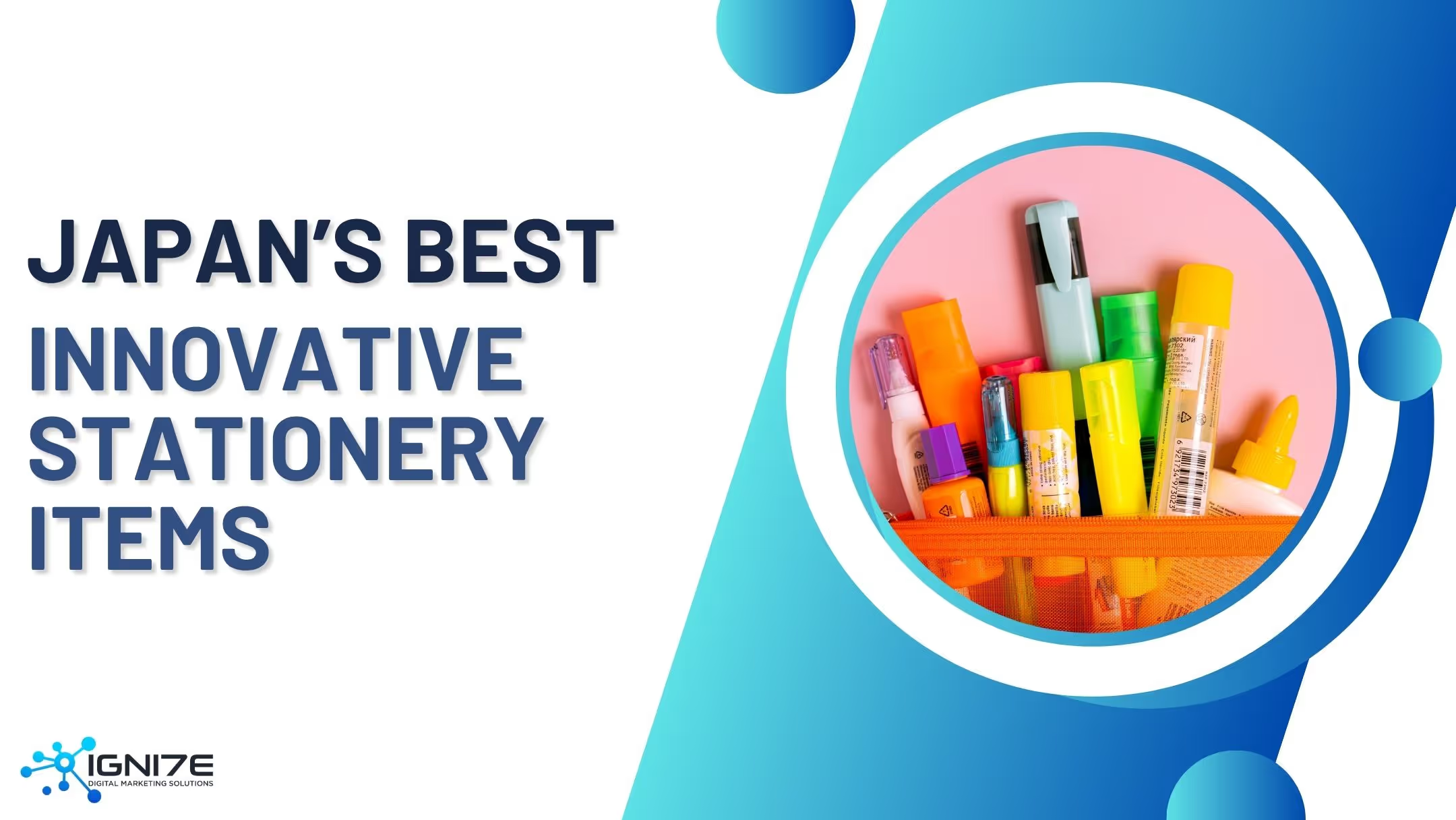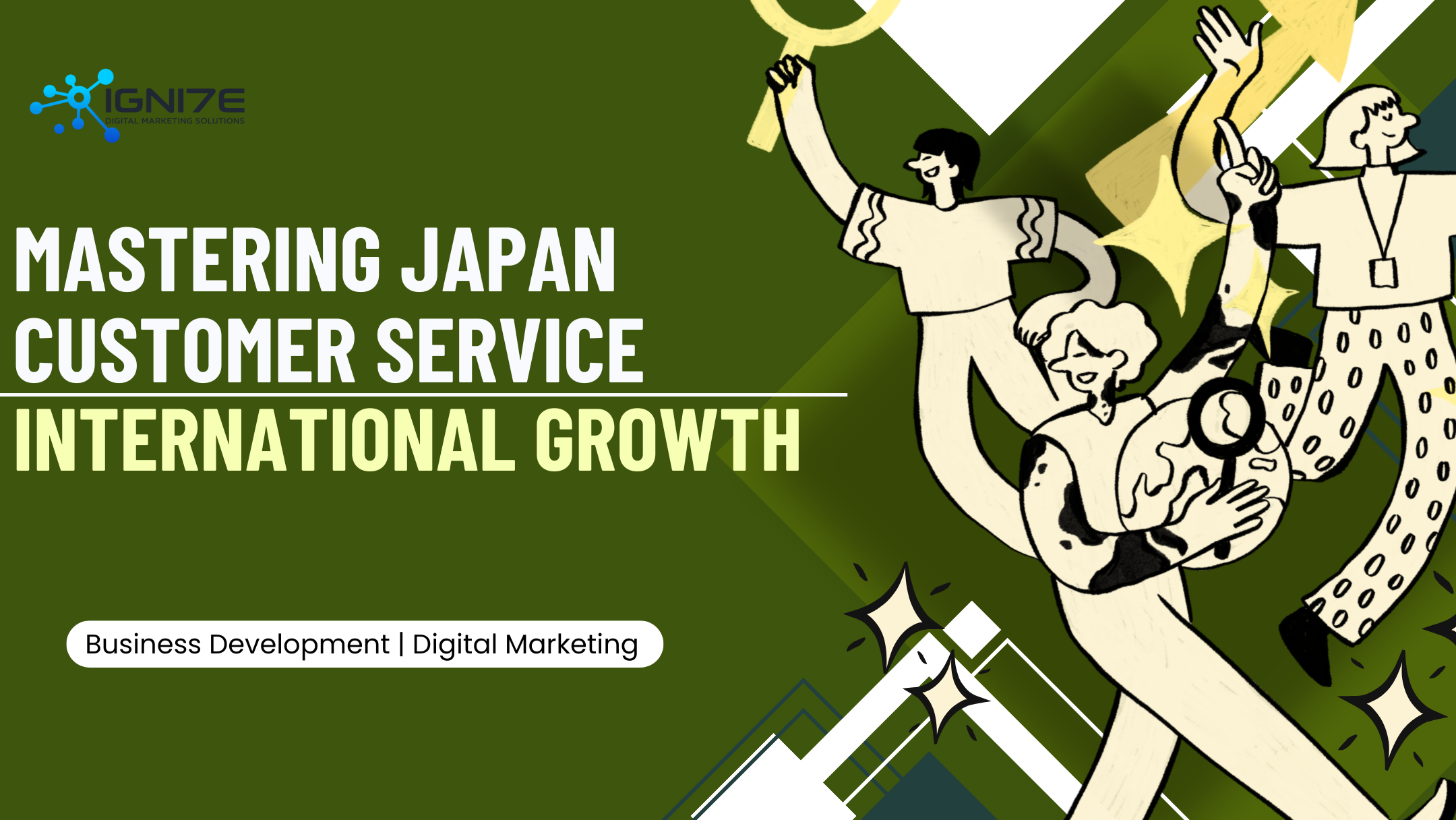Top 10 Japanese Regions for International Business Expansion
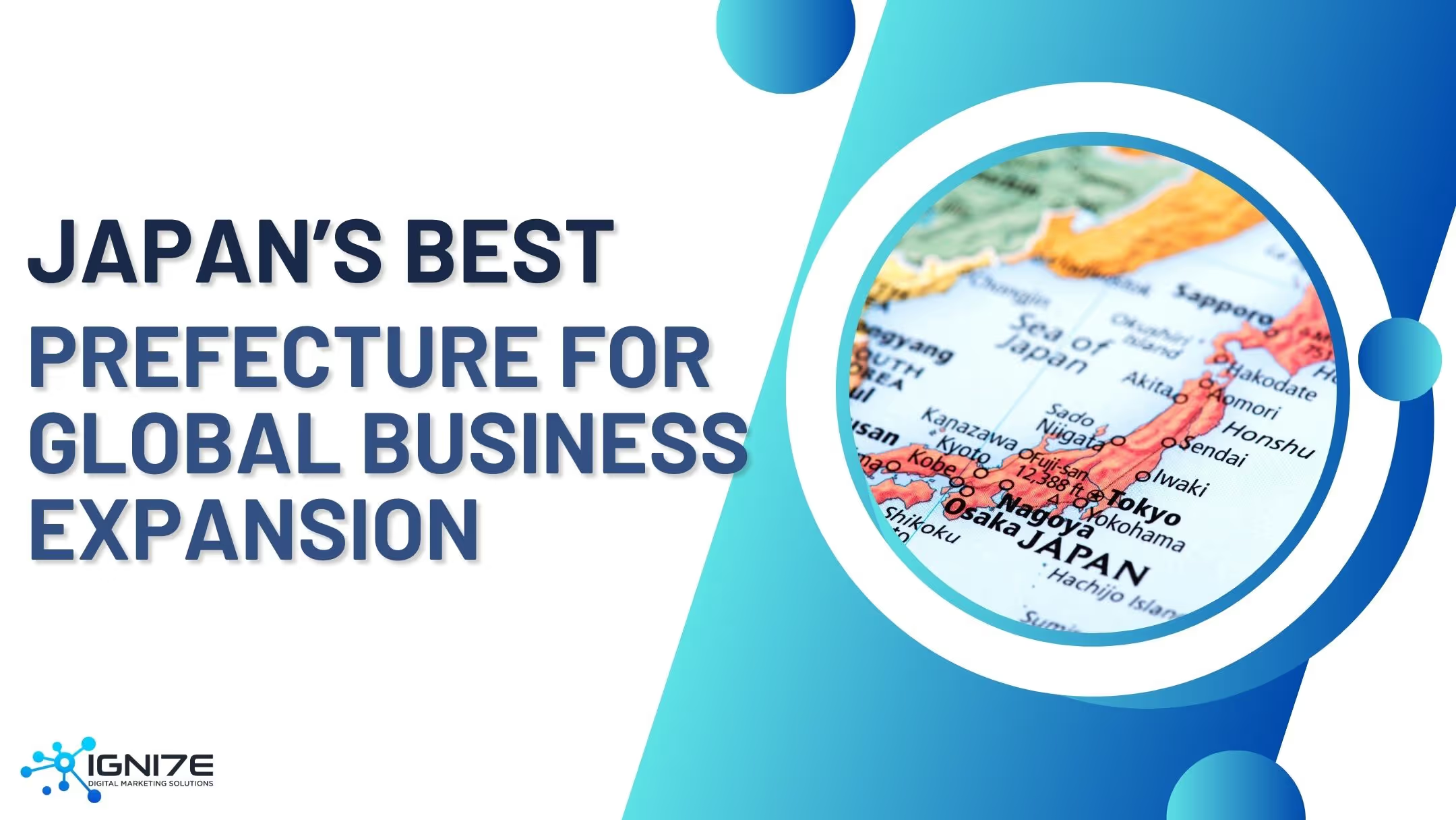
Japan continues to be a powerful magnet for international businesses looking to enter or expand within the Asia-Pacific market. While Tokyo remains popular, several other prefectures across Japan offer unique advantages, from generous government incentives and world-class infrastructure to specialized industry clusters and access to skilled talent. Whether you're launching a startup, setting up regional headquarters, or exploring new manufacturing bases, choosing the correct location is crucial. This guide highlights the top 10 prefectures in Japan that are best suited for foreign business expansion and what makes each one stand out.
Best Prefectures in Japan for Foreign Business Expansion
- Tokyo
- Osaka
- Fukuoka
- Aichi
- Kanagawa
- Kyoto
- Okinawa
- Hokkaido
- Hiroshima
- Shizuoka
1. Tokyo
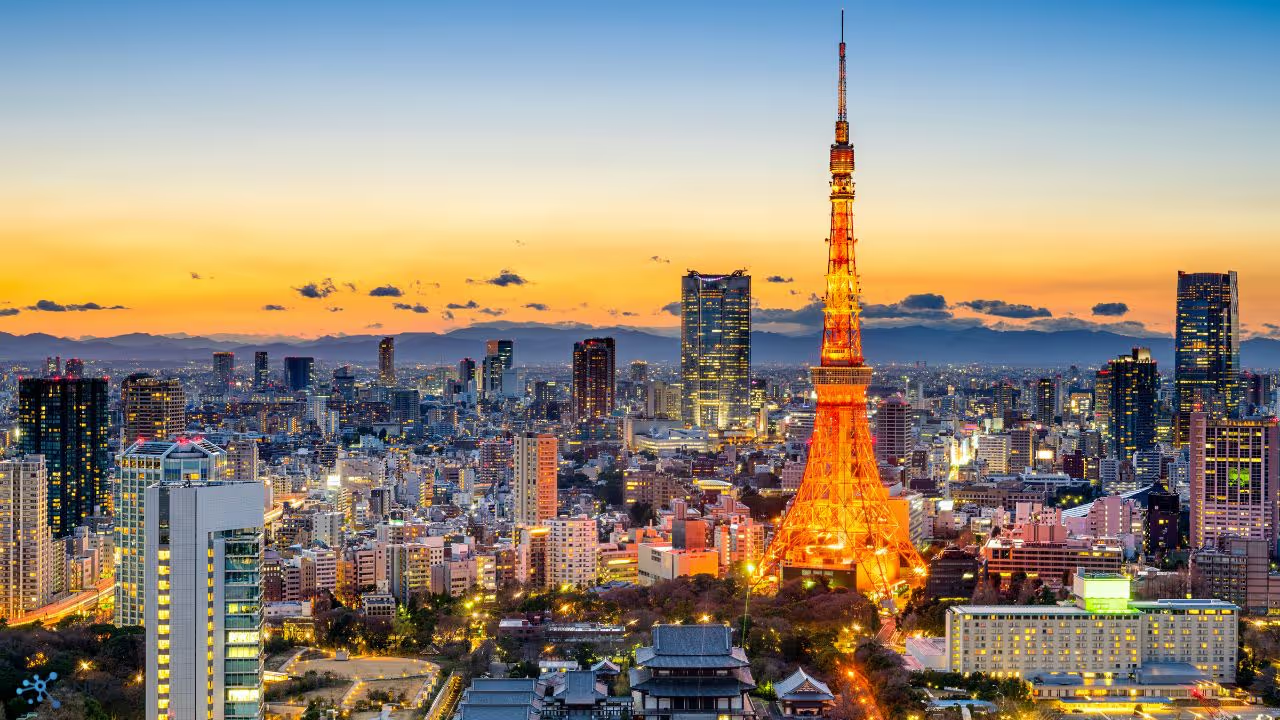
As Japan’s capital and economic powerhouse, Tokyo remains the most prominent destination for foreign businesses looking to establish a strong foothold. It serves as the center of finance, government, international diplomacy, and innovation, offering unmatched access to major global markets. Tokyo's sheer scale, connectivity, and cosmopolitan environment make it ideal for businesses aiming to rapidly build international credibility and scale.
- Key Advantages:
- Access to international talent and business partners
- Bilingual administrative support via TOSBEC (The Tokyo One-Stop Business Establishment Center)
- World-class infrastructure and public transport
- Best for: Regional HQs, fintech, media, and consulting firms.
2. Osaka
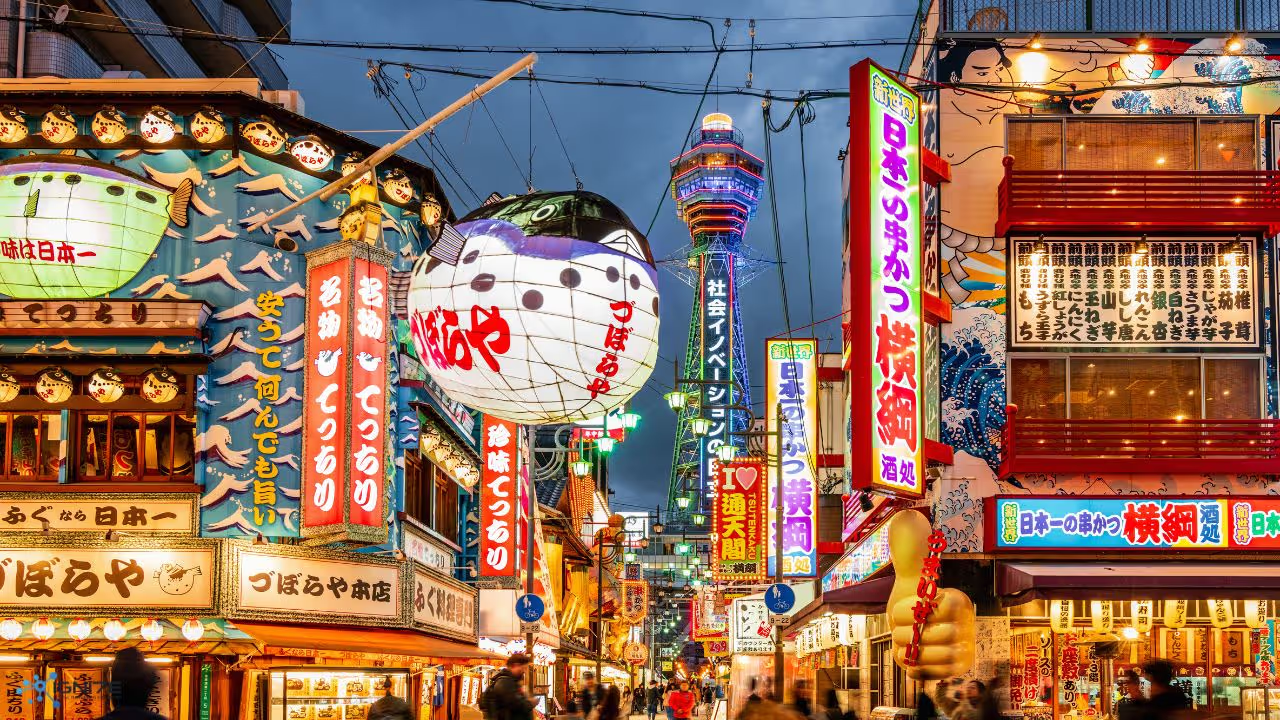
Osaka stands out as the commercial engine of western Japan and an increasingly attractive alternative to Tokyo for foreign companies. It combines a rich history of trade and commerce with a dynamic, growing startup scene. The city is especially strong in medical and life sciences, electronics, and advanced manufacturing, and it continues to draw investment from both domestic and international players, thanks to its strategic location and more affordable cost structure.
- Key Advantages:
- Lower costs than Tokyo
- Major life sciences cluster
- Strong international ties via Kansai International Airport
- Best for: Biotech, health tech, and urban logistics.
3. Fukuoka
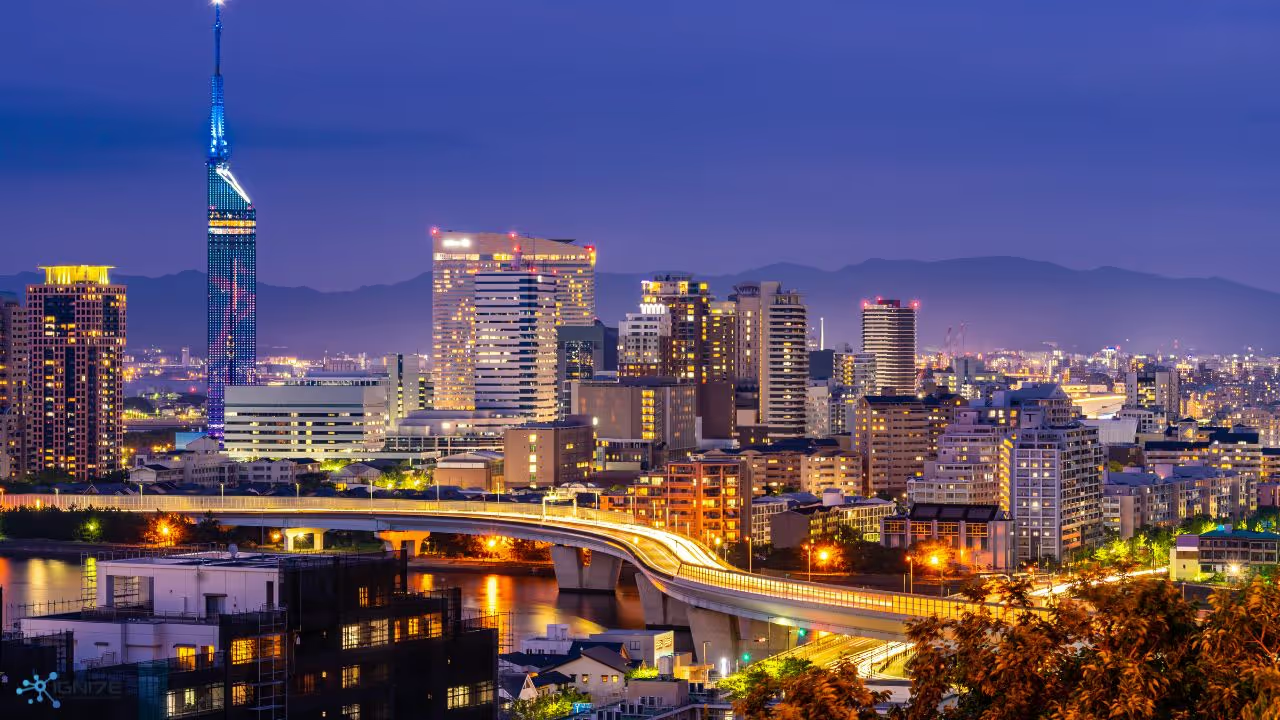
Fukuoka has earned a reputation as one of Japan’s most forward-thinking cities for welcoming foreign startups and entrepreneurs. Designated a National Strategic Special Zone for Global Startups, Fukuoka actively fosters international business through special visa programs and tax incentives. Its youthful population, tech-driven mindset, and proximity to other Asian markets make it a standout city for companies looking to scale across the Asia-Pacific region.
- Key Advantages:
- Startup visa and financial incentives
- Strong tech community (especially in web, app, and game development)
- High quality of life for a lower cost
- Best for: Early-stage startups, creative industries, biotech, automobile companies, and regional hubs.
4. Aichi
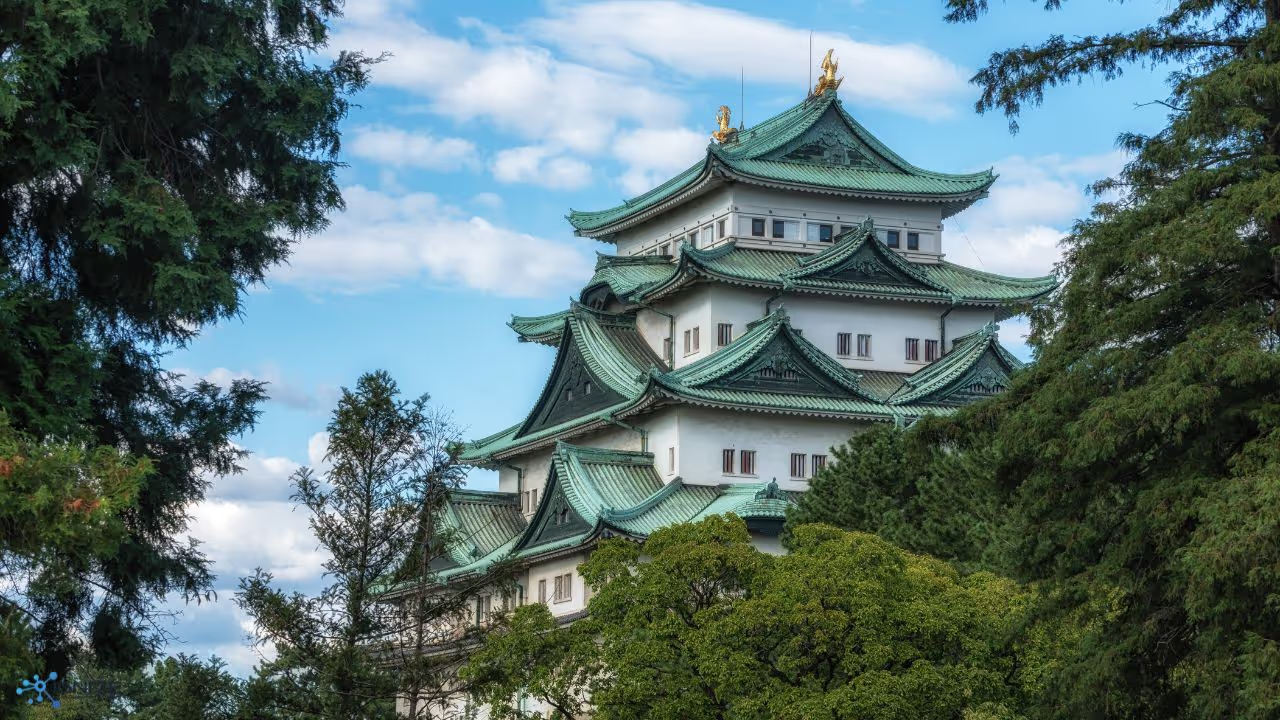
With Nagoya as its capital, Aichi Prefecture is Japan’s industrial and manufacturing core. It’s home to some of the world’s most influential manufacturing companies, including Toyota, and supports a vast network of suppliers, R&D centers, and technical universities. The region has positioned itself as a global leader in next-generation manufacturing technologies, such as robotics and aerospace, offering a deep ecosystem for engineering-driven foreign firms.
- Key Advantages:
- Advanced manufacturing and R&D centers
- Supportive business ecosystem for suppliers and subcontractors
- Skilled labor pool in robotics, precision tools, and AI
- Best for: Automotive, industrial automation, robotics, aerospace, and engineering services.
5. Kanagawa
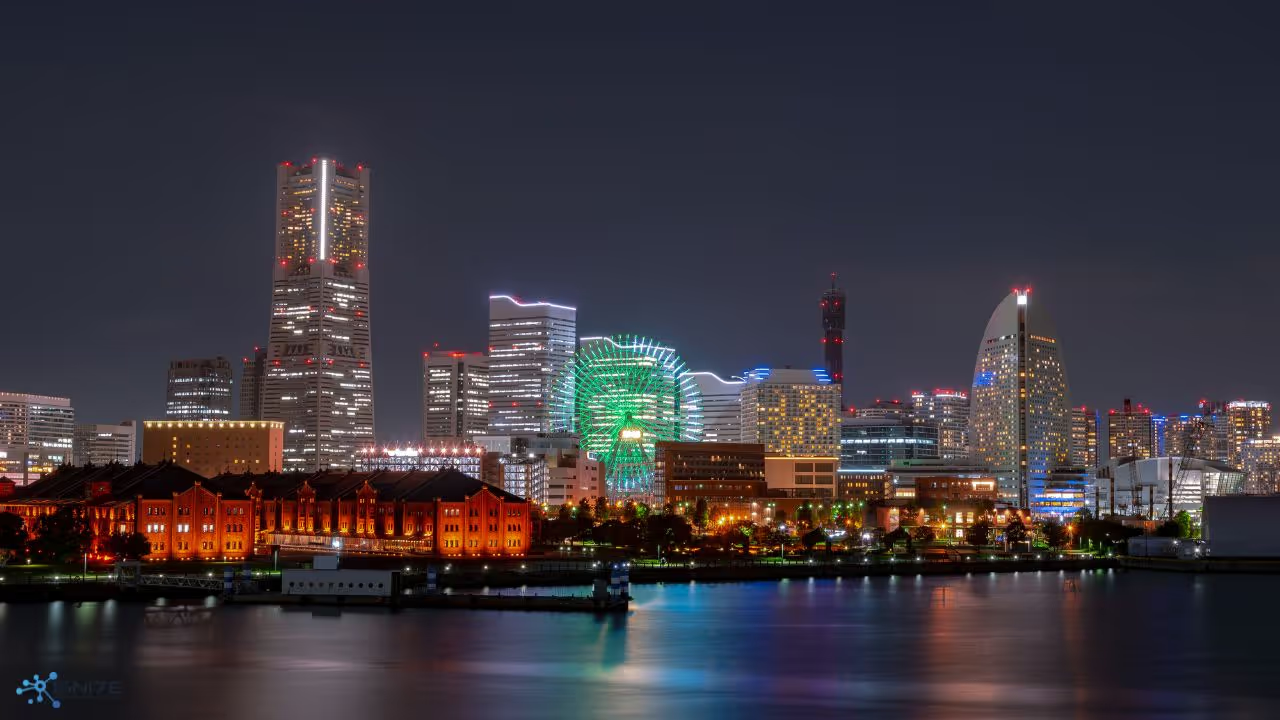
Bordering Tokyo to the south, Kanagawa—anchored by Yokohama—is a significant business center in its own right. It offers a well-balanced blend of industrial strength, innovation hubs, and lifestyle appeal. Yokohama boasts a strong global presence, thanks to its advanced port facilities and headquarters of multinational corporations. It is also preferred for international employees due to its expat-friendly infrastructure and vibrant cityscape.
- Key Advantages:
- Global R&D centers (Nissan, Fujifilm, etc.)
- Quality living environment and international schools
- Growing foreign entrepreneur community
- Best for: Port logistics, manufacturing, IT, and life sciences.
6. Kyoto
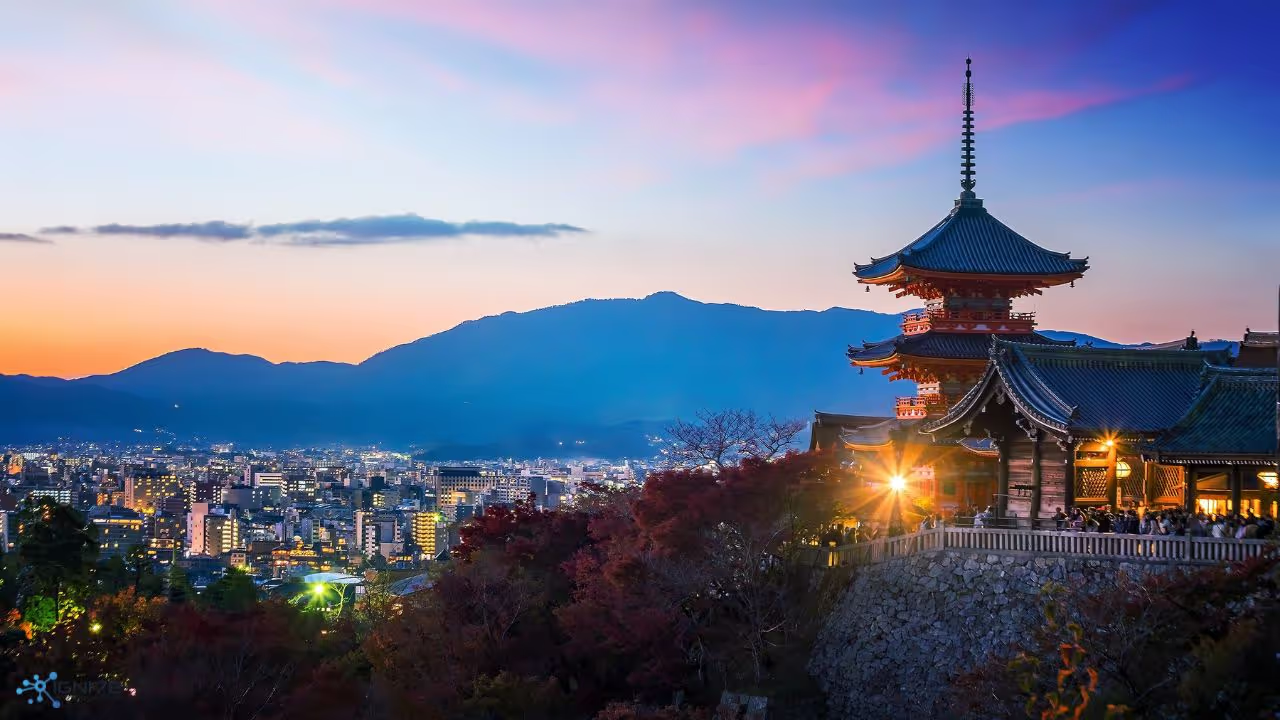
Kyoto is globally celebrated for its cultural heritage, but beneath its historic surface lies a robust manufacturing-driven economy. The prefecture is a central hub for precision manufacturing, particularly in electronics. Companies like Nintendo, Kyocera, and Omron have roots in Kyoto, reflecting the region’s deep expertise in producing high-value, high-precision goods. This industrial strength is reinforced by top-tier research institutions such as Kyoto University, which help drive innovation in fields like robotics, clean energy, and life sciences. The city’s unique integration of traditional craftsmanship and advanced technology creates an ideal environment for foreign companies focused on quality-driven production and R&D.
- Key Advantages:
- Strong manufacturing ecosystem, especially in electronics and components
- Access to world-class research institutions and academic talent
- Global leadership in precision engineering and automation
- Best for: Advanced manufacturing, traditional industries, the content industry, and electronics.
7. Okinawa

Okinawa offers a strategic location between Japan and Southeast Asia, making it a compelling option for companies with regional ambitions. Unlike the high-density business districts in Tokyo, Okinawa provides space, cost savings, and access to growing sectors such as tourism technology, back-office operations, and logistics. Its status as a Special Economic Zone adds further appeal, giving foreign firms enhanced support to establish and grow in a relaxed, tropical setting.
- Key Advantages:
- Proximity to China, Taiwan, and Southeast Asia
- Incentives through special economic zones
- Lower real estate and operating costs
- Best for: Tourism tech, logistics, BPO, marine R&D, and back-office operations.
8. Hokkaido
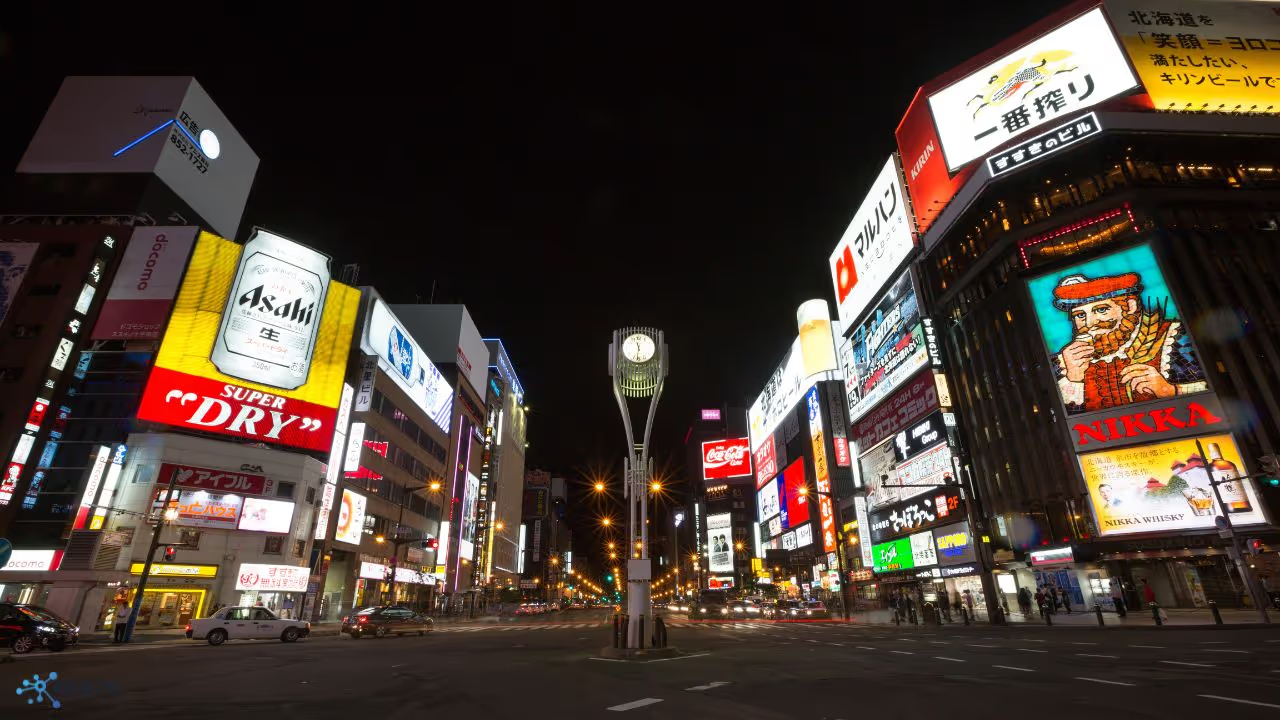
Hokkaido is increasingly being recognized for its potential in agriculture, food innovation, and renewable energy. With its expansive land, clean environment, and government-backed green energy initiatives, Hokkaido attracts companies focused on sustainability and food tech. Its cold climate and rich natural resources also support data centers and winter tourism industries. For businesses seeking R&D opportunities or eco-conscious expansion, Hokkaido offers untapped potential.
- Key Advantages:
- Strong in agritech and food processing
- Investment in wind and geothermal energy
- Support from local universities and tech parks
- Best for: Agri-food startups, clean energy ventures, winter tourism tech, and environmental R&D.
9. Hiroshima

Hiroshima is more than a symbol of peace—it’s also a critical industrial and transportation hub. The region is heavily involved in automotive and heavy industries, with companies like Mazda headquartered there. Its strategic position on Japan’s Inland Sea, combined with a network of modern ports and expressways, makes it ideal for logistics-intensive businesses. Hiroshima also has a strong shipbuilding industry and is famous for its traditional industries.
- Key Advantages:
- Automotive manufacturing
- Port access and strong logistics infrastructure
- Major economic hub in the Chugoku region
- Best for: Automotive tech, green mobility, advanced logistics, and traditional industries.
10. Shizuoka
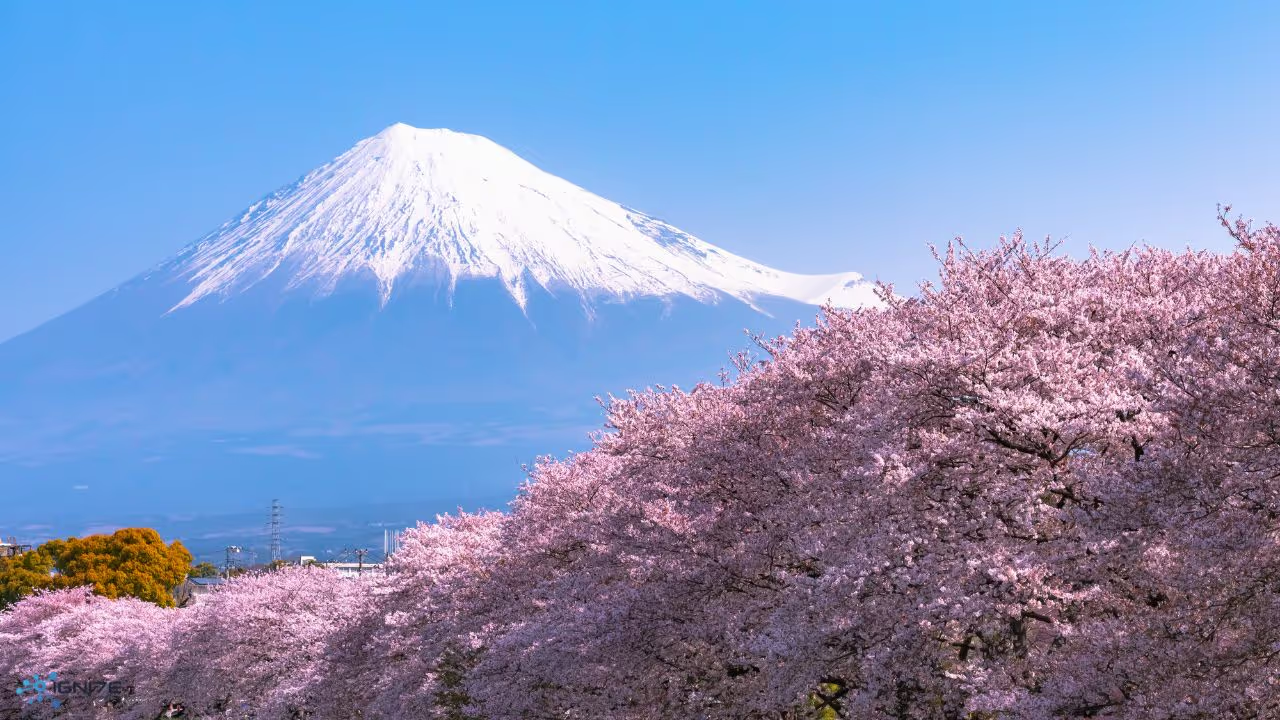
Shizuoka, located between Tokyo and Nagoya, holds a logistical sweet spot along Japan’s vital transportation corridors. With the Port of Shimizu and access to both the Tokaido Shinkansen and major expressways, the prefecture supports fast, efficient movement of goods. It’s powerful in food processing, beverage production (especially green tea), and musical instruments. Shizuoka is perfect for companies seeking a stable, strategically located base with room for growth and integration into Japan’s domestic supply chain.
- Key Advantages:
- Easy access to major highways and the Shinkansen
- Strong food tech and packaging industries
- Port of Shimizu enables global trade
- Best for: Food exports, beverage production, musical instruments, and supply chain services.
Conclusion
Expanding your business into Japan doesn’t have to start and end with Tokyo. From the industrial strength of Aichi and the startup energy of Fukuoka to the green innovation of Hokkaido and the logistical edge of Shizuoka, Japan offers diverse options tailored to different industries and growth strategies. By understanding each region's unique strengths and leveraging local support systems, foreign businesses can confidently enter the Japanese market and scale with long-term success. Looking to find the best fit for your expansion? Start with these 10 prefectures and match your business goals with the right local ecosystem.







